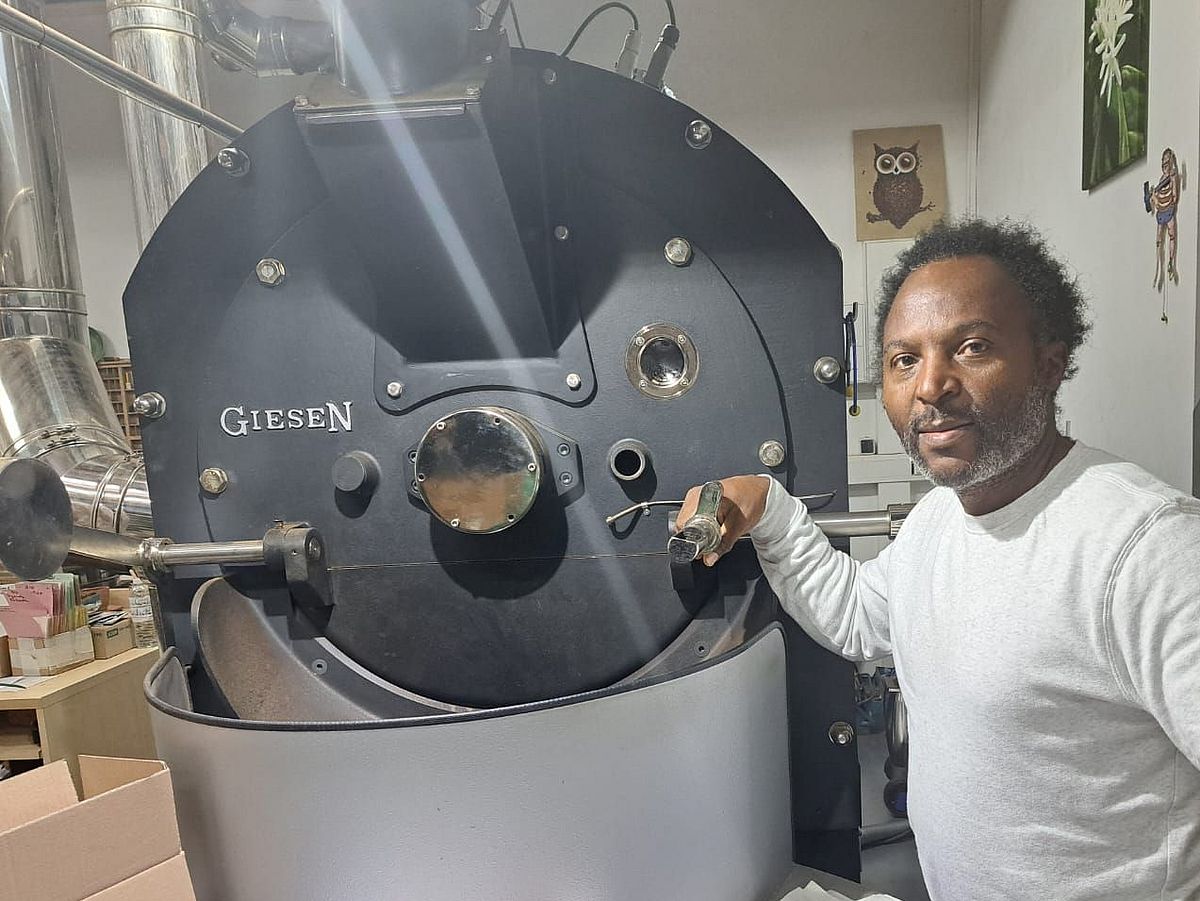An espresso… with Morin Fobissie Kamga

Morin Fobissie Kamga is from Cameroon, where he completed a bachelor's degree in management and accounting. From 1999 to 2005, he studied economics at the University of Bremen and graduated with a Diplom. Before that, he attended Uni Bremen language courses starting in 1997. He is the founder and managing director of UTAMTSI GmbH, a Bremen-based coffee import, roasting and distribution company.
Why did you come to the University of Bremen for your studies?
I initially came to the University of Bremen from Cameroon for a language course, but actually had a place at a private university for business management in Koblenz. But at that time, there was a very broad and critical discussion at Uni Bremen around elites. The topic and this culture of discussion fascinated me and so I decided to stay here in Bremen for my actual studies.
Did that extend into your studies?
Definitely, I loved and really indulged in the whole atmosphere at the University of Bremen. There were constant political debates, led by AStA or political groups that distributed their leaflets. The university was open to that. I also did a lot with the Protestant Student Community (ESG), which was very involved with international students. In my courses, I especially enjoyed the project work.
Which professors had the most impact on you?
For me, Professor Heide Gerstenberger was invaluable. In her classroom I learned a lot about globalisation and the associated social conflicts. I'm still occasionally in contact with her. She's the co-founder of Tasse, a day centre for homeless people in Bremen's Walle district. I also benefited from the finance seminars with Professors Hickel and Hufschmidt. It was always about taking a critical look at the economy, the same with Professor Müller-Christ, who taught sustainable management very early on.
Did your studies help you in founding your company, UTAMTSI?
Absolutely. The two of us founded UTAMTSI as a GmbH and in this respect UTAMTSI is of course a completely normal company. But for us it's actually more of a social concern, a project where profit isn't front and centre. For me it's about the people in the countryside, in Cameroon and other African countries. Due to often extremely low incomes, children from farming families have insufficient access to education and schools. As a result, their social mobility and their future prospects in general are very limited. We've set up a social and ecological enterprise to support these people. We are also directly involved there, training the farmers themselves in organic coffee cultivation. At the same time, we guarantee fair purchase prices for the coffee, for the work the farmers put in. We now work with around 1,300 coffee farmers in Cameroon and around 800 in Uganda, and every year we cooperatively expand the areas for organic coffee cultivation.
But consumers aren't only interested in the social or ecological aspects of coffee production, they're also interested in the quality. The coffee has to taste good.
Definitely. That's what gives it its utility value. In our value chain model, we make sure that our coffee always tastes the same today as it will tomorrow and the day after tomorrow, so that the brand is recognisable. The intinsic quality of the coffee comes from how it's cultivated. For that we've worked together with our coffee producers to develop a common quality management system. But we are still a small company, with just over ten employees here in Germany. Studying at Uni Bremen really helped me to understand all of this, the issues of globalisation, fair trade and brand building. We show in practice that a different, fairer way of doing business can also work.
What advice would you give to students today?
Studying means going in search of solutions. I would advise everyone to also get practical experience abroad, like in volunteer projects, and then during their studies look into how solutions can be found for the world's major problems and issues.
What does the University of Bremen mean to you today?
I'm still in good contact. I was taking courses for the master's degree in ecology until 2018 and now I’m glad to be a member of the alumni association and enjoy attending its events.

